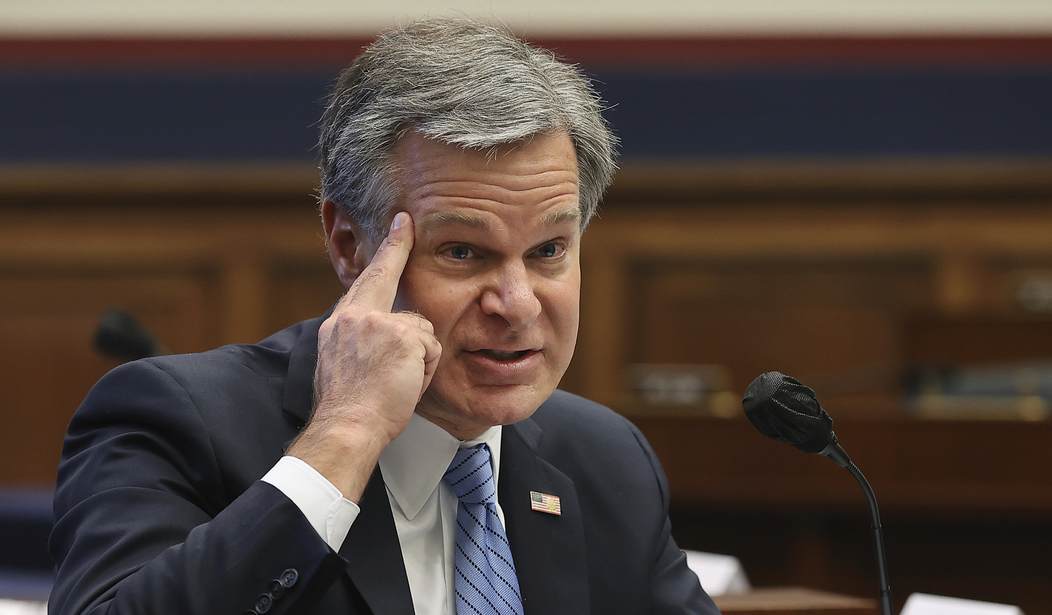If there is anything the FBI knows, you can’t be convicted if there is no evidence to prove something.
That is undoubtedly why it is stonewalling Protect the Public Trust‘s FOIA request for documents containing communications between its agents and Twitter regarding censorship.
As long as they can hide the ball, the MSM can claim that there are only unverified “allegations” about the FBI’s coordinated campaign to violate the First Amendment rights of Americans.
You can see the results of the information vacuum at today’s Weaponization of Government hearings, at which Michael Shellenberger testified. Despite having the evidence, its failure to be reported in the MSM means that most Americans will never hear the truth. For many people, it will just be the uncorroborated word of some “independent journalist” they never heard of vs. Congressmen and the MSM.
After all, if it were true, the media would have reported it.
Actual FBI documents showing that the FBI participated in a coordinated campaign to shut people up will be harder to dispute, so the FBI doesn’t want to give them up.
Their excuse? That revealing the documents will violate the privacy rights of the people to whom they communicated.
That is, of course, absurd on its face. These are official documents containing no private information. A government agency is communicating with corporate officers and employees about a matter of public interest. There are no criminal investigations, and indeed nothing personal about them.
This is no different than the government refusing to show a contract because an individual signed it.
“We can’t show you the contract. It has the name of a non-government employee.” Absurd.
Today, ethics watchdog Protect the Public’s Trust announced litigation against the Federal Bureau of Investigation (FBI) for denying a series of records requests related to involvement of FBI officials in the censorship of American citizens as revealed in the Twitter Files exposés. Despite the heightened level of public interest in these records the FBI refused to comply, even though records available in the public domain acknowledge the existence of these documents.
In December 2022, journalists began reporting on the Twitter Files, which consisted of thousands of internal documents and discussions involving Twitter employees about content moderation decisions. These communications detailed conversations in which federal government officials were advising, and in some cases demanding, Twitter to “shadow ban,” censor, and/or disable certain accounts under the guise of “combatting disinformation.”
In March, PPT submitted a series of records requests to shed light on the conversations occurring between Twitter employees and FBI officials. Information already in the public domain revealed FBI agent Elvis Chan acknowledged meeting and communicating with Yoel Roth, head of Trust and Safety at Twitter. Just two weeks later, the FBI denied PPT’s requests mischaracterizing them as requests for “records on one or more third party individuals.” But the requests clearly sought records of communications between a government agency and a third-party individual – a common records request and subject to release under FOIA. PPT filed administrative appeals of the decision on these requests.
One by one, the FBI denied PPT’s appeals, stating:
I am affirming the FBI’s action on your request . . . Confirming or denying the existence of such records, including law enforcement records, concerning a third-party individual would constitute a clearly unwarranted invasion of personal privacy, and could reasonably be expected to constitute an unwarranted invasion of personal privacy.
PPT is being forced to sue the government to get what is clearly public information under the law, which I suppose is on-brand for today’s FBI. After all, censoring information is now one of their primary tasks. The public has no right to know because they might come to the “wrong” conclusions.
They call this “cognitive security.” No, I am not kidding. That is actually what they call it.
They are protecting us from “wrongthink.”
I have, until recently, had great respect for the FBI, wrongly believing they were there to protect the public from predators of all kinds.
Now I know they are themselves predators, using their authority to gain control over the public discourse and political power.








Join the conversation as a VIP Member